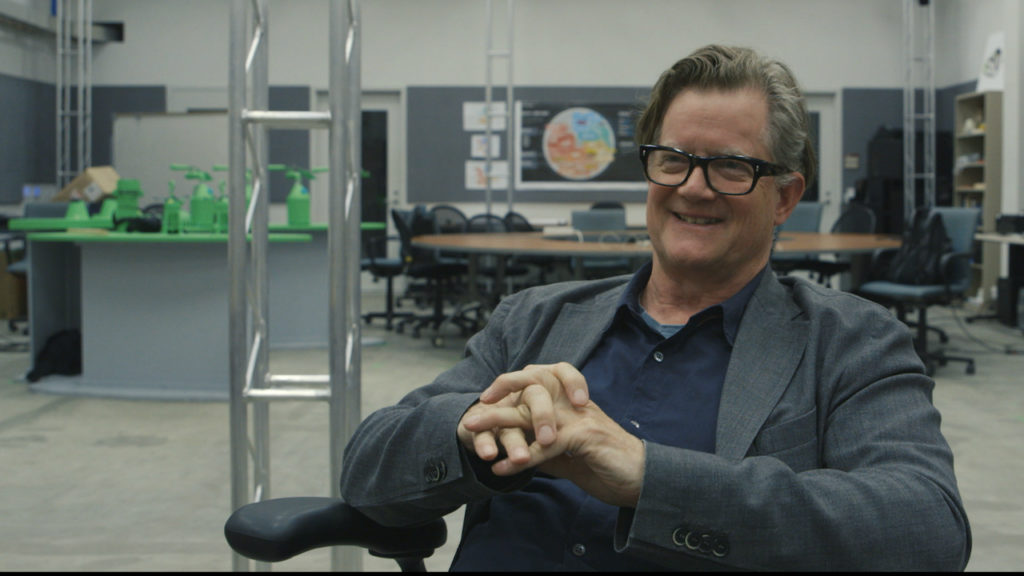World building operates at the intersection of design, technology and storytelling. Zoom the cameras in for a tighter shot, and Alex McDowell can be seen standing smack dab in the middle of its twisting and crossing streets.
The production designer—responsible for “world making” and developing complex future reality stories in such Hollywood classics as Minority Report and Fight Club—uses augmented, virtual and mixed reality frames to disrupt single-viewpoint narratives in order to make sense of the world around us.
The Borneo-born Brit has made a career for over 35 years by constantly evolving in the space, and contributing to its collaborative filmmaking narrative ever since he took his first shot at immersive experiences and virtual reality with The Lawnmower Man in 1992. The science-fiction action horror film is best known for being the first grand unveiling of VR.
In the present, the award-winning McDowell is instilling and preaching the practices he’s plied during his career to an interdisciplinary group of students at USC, where he serves as a director at the World Building Media Lab developing a common language for them to learn from.
In addition to stimulating new kinds of technologies and complex systems, McDowell is also the creative director of 5D Global Studio, a multi-platform, cross-discipline design studio.
[a]listdaily sat down with McDowell at his USC lab to discuss how he’s engaging and interacting with narratives and parallel universe experiences, as well as to discuss the Leviathan Project, which explores new possibilities in entertainment with physical and virtual worlds.
